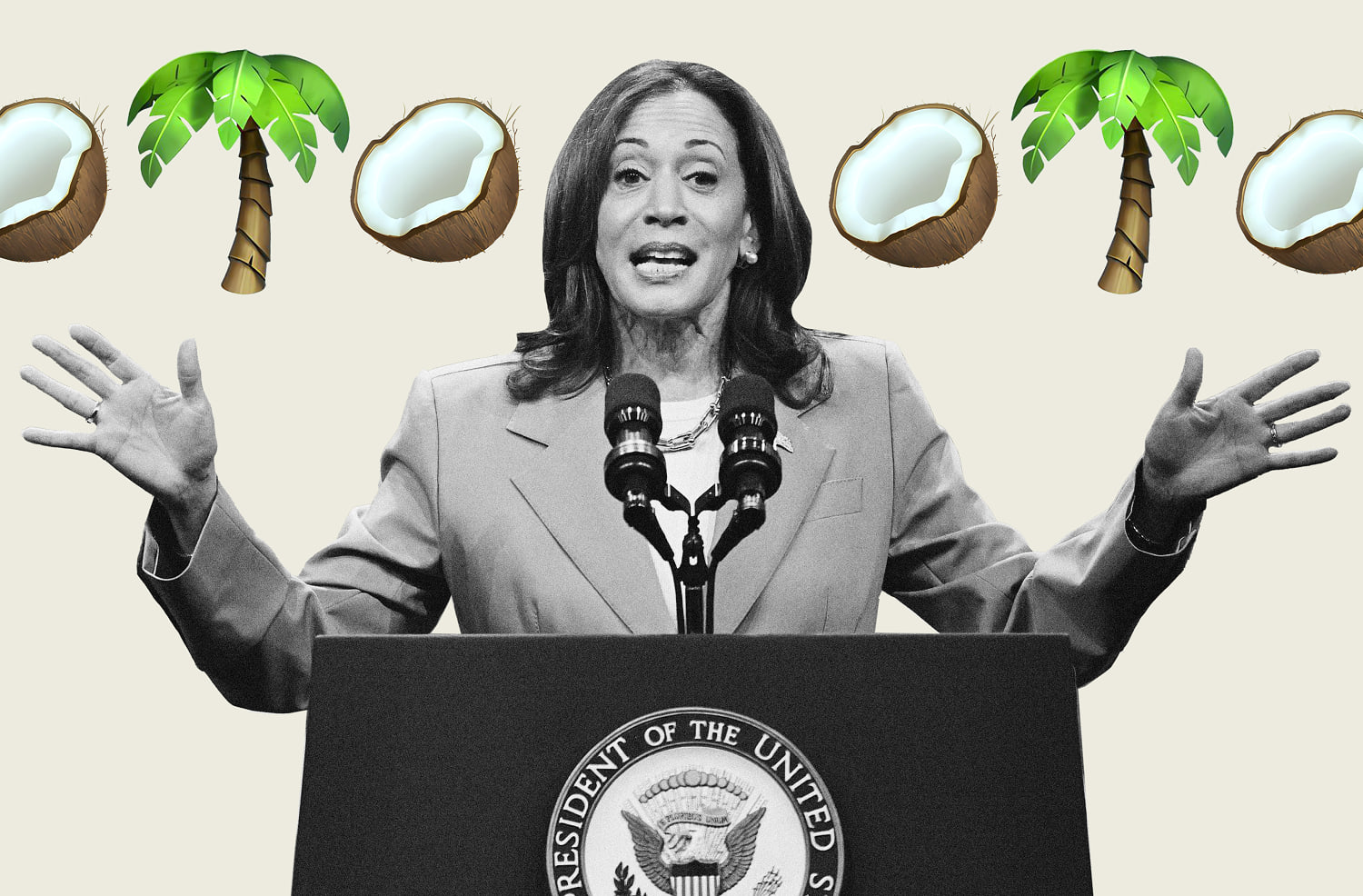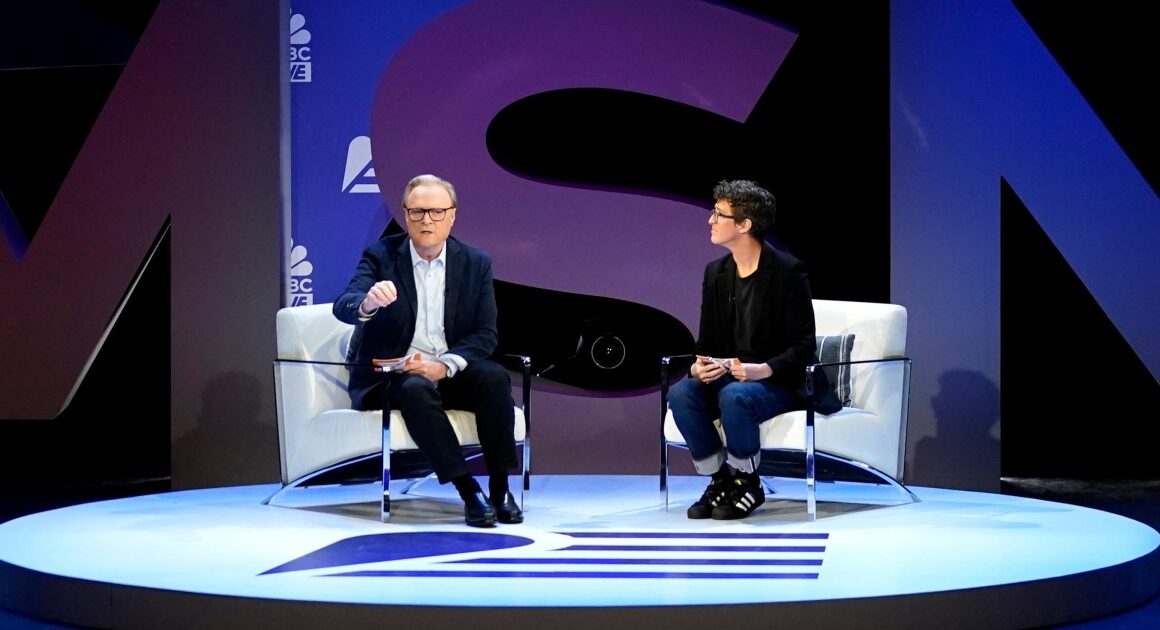
When President Joe Biden announced his departure from the 2024 presidential race and his endorsement of Kamala Harris last week, it didn’t take long for videos of the vice president to start trending on social media.
A video of Harris dancing with a group of children resurfaced from years ago. The TikTok, posted by The Daily Mail, reached over 28 million views and was captioned on screen, “Kamala Harris on her way to White House: 🕺
Perhaps the most viral Harris video has been the “You think you just fell out of a coconut tree” moment, which originated from Harris’ May 2023 speech about advancing opportunities for Hispanic Americans. The coconut and tree emoji now symbolize Harris’ campaign, expressing a certain goofiness, but also an excitement about Harris as the clear front-runner for the Democratic presidential nomination.
Viral moments like these showcase the wackier side of politics. Already this year, social media users have seen Republican nominee Donald Trump rambling about washing machines, Biden appearing to walk away from world leaders at the G7 meeting, and Biden and Trump arguing about who has the bigger golf handicap at the debate.
For people who get their news through newspapers, magazines and TV, those moments were brief asides in a complex news cycle. But for a growing number of Americans who only get their news through social media, they may have been the main event. Meaning there’s reason to take these bite-size, memeable moments and social videos seriously as we navigate a particularly chaotic presidential election.
This demonstrates how prospective Gen Z voters are consuming content, revealing that viral moments tucked away into memes and short-form video may have a larger meaning.
A Pew Research survey published in February found that 56% of all U.S. adults ages 18 to 34 say they use TikTok. According to Politico Playbook, “In the two days since Biden dropped out, Vote.org saw its highest levels of new voter registrations of the whole cycle: 38,500 people signed up, a 700 percent spike and higher even than when TAYLOR SWIFT made an Instagram post. Most were 34 and under.” This demonstrates how prospective Gen Z voters are consuming content, revealing that viral moments tucked away into memes and short-form video may have a larger meaning.
Viral videos could also have an adverse effect on the election by spreading misinformation or giving a misleading impression of what’s going on.
While misinformation is a clear disadvantage of social media, raising awareness to different topics is a major benefit.
New York state Sen. Monica R. Martinez said that viral videos can help get people who aren’t paying attention more interested in the election.
“Social media plays one of the most important roles in mobilizing the community, rallying support for candidates, and ultimately driving voter turnout,” she said.
And while the kinds of videos that go viral tend to be a little goofy, that doesn’t mean they don’t have any value.
Jennifer Stromer-Galley, a professor of information studies at Syracuse University, said that the back-and-forth between Trump and Biden at the debate over who plays golf better, despite being “incredibly childish” in her words, accurately communicated the clear power struggle between the two then-candidates.
It also went viral because it reflected concerns that voters already had about the ages of the two candidates and their ability to do the job.
The viral video that appeared to show Biden walking away from leaders at the G7 summit was later debunked for using misleading camera angles and cutting off a moment when Biden was actually walking over to talk to a parachuter. While misleading, it went viral because it reflected voters’ actual concerns about the president.
Dr. Dannagal Young, a professor of communication and political science at the University of Delaware who has more than 21,000 followers on X, said the moments that go viral also tend to have a strong emotional tinge to them, especially if they’re tied to the viewer’s own identity.
That can be incredibly powerful at resonating with viewers, and it can also cut both ways, as we saw with videos showing Trump making baseless claims about the 2020 election, which tend to get shared by both Trump supporters and critics, albeit for different purposes.
“It’s about in-group, out-group threat,” Young said. “If you’re on the right, you’re proud that he’s saying this. If you’re on the left, you’re outraged that he’s saying it. So those kinds of references have a stickiness to them.”
Young said voters should keep that dynamic in mind when they’re using social media and consider whether it’s worth amplifying the other side’s claim just because they personally find it divisive.
“When you encounter content that makes you feel a strong emotion, you have to ask yourself, ‘Why am I feeling this? Who is benefiting from this, and do I want to be complicit in furthering this sort of emotional contagion of this kind of content that is so divisive?’” she said. “Before you go to like or retweet or whatever, you have to ask yourself, ‘Do I want to be a cog in the machinery of this algorithm that makes this content more potent, more powerful, or should I just sit this one out?’”
This election cycle is unprecedented in more ways than one, and social media adds another layer to an already nuanced conversation. Will these viral moments affect the election? The answer is: only if we let them.
![]()







